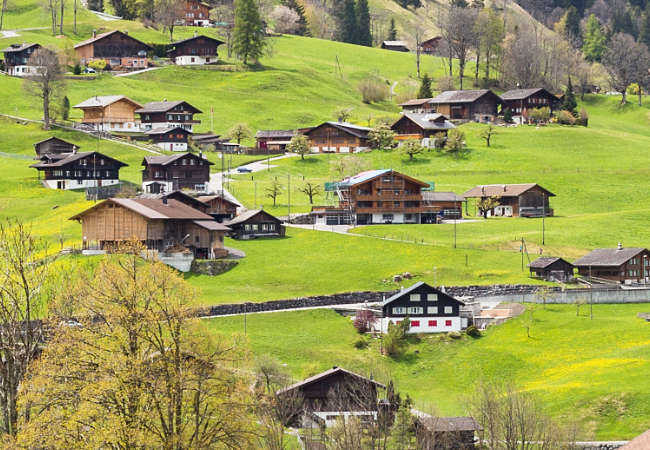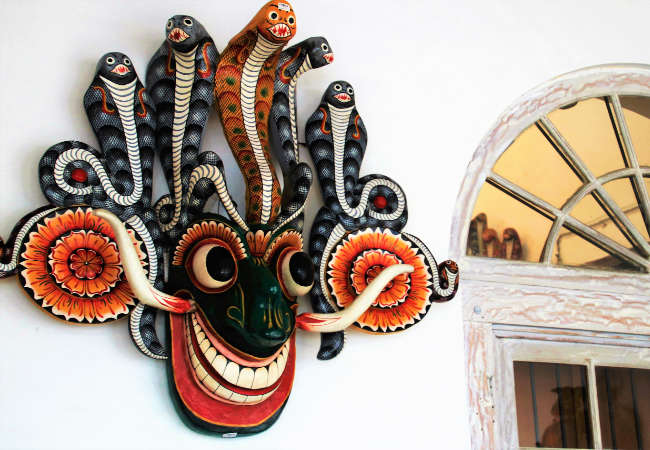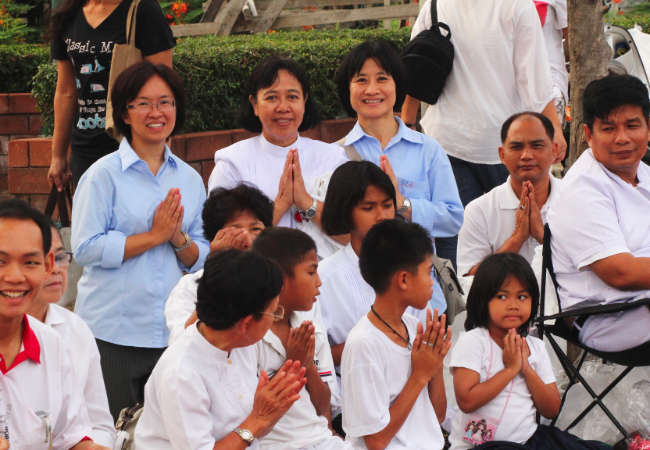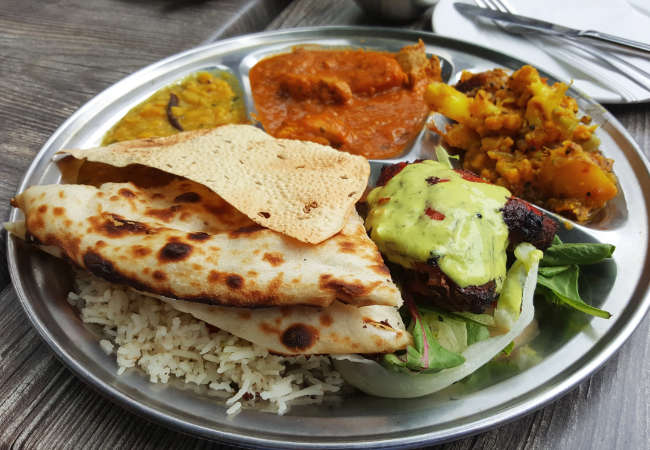



For what is referred to as a desert, Rajasthan is amazingly populated: its landscape scattered with a number of villages and hamlets, telltale signs of tree groves and populations of cattle being the only indication that there is such a settlement in close proximity.
The typical village has always been difficult to spot till one is actually upon it. Its simplest hamlets, the most basic form of civilisation with a way of life that has probably remained unchanged since centuries, consists of a collection of huts that are circular, and have thatched roofs.The walls are covered with a plaster of clay, cow dung, and hay, making a termite-free (antiseptic) facade that blends in with the sand of the countryside around it. Boundaries for houses and land holdings, called baras, are made of the dry branches of a nettle-like shrub, the long, sharp thorns a deterrent for straying cattle.

If a hamlet looks bleak, it is hardly surprising: the resources for building these homes, which are the most eco-friendly living unit, are made with what is available at hand, and in Rajasthan, and particularly so in its western desert regions. This can mean precious little. A village that is even a little larger may have pucca houses, or larger living units, usually belonging to the village Zamindar family. Consisting of courtyards, and a large Nora or cattle enclosure, attached to one side or at the entrance, these are made of a mixture of sun-baked clay bricks covered with a plaster of lime.

Decorative facades in such units are limited to creating a texture in the plaster in the facade, or using simple lime colours to create vibrant patterns at the entrance, and outside the kitchen. These homes capture, for many of its residents, the only cosmos they know. For the women, but for visits within the village community, the only social occasions were in the nature of pilgrimages which were usually combined with fairs. But it is when they step out that the stark desert and the village break into a feast of colour: turbans bob past in saffron and red; skirts billow beneath mantles that veil the faces of their women- if they didn't, the jewels that glint on their foreheads and faces would add to the shocking surprise of their magentas and their blues, greens and pinks.
Each village is a multi-community settlement, the various castes creating a structure of dependence based on the nature of their work. While changes are being wrought in this structure, with ceilings on land holdings, and with young seeking employment opportunities in towns distant from their villages, the social fabric has still not been rent.
At the head of the village settlement are usually the Rajputs, the warrior race whose kings ruled, till recently, over these lands. The Rajputs served their kings, joining their armies, and raising their cavalries , but an attendant pursuit was as agriculturists. Often, they employed labour to work on their extensive fields, and kept cattle for dairy produce. In fact, the cattle density in Rajasthan is very high, and milk from desert settlements is supplied to the large cities close to the state, including Delhi.

An intensely religious people, each home in Rajasthan will have a room or at least an alcove where they fold their hands and say their prayers before calendar images of their gods. To seek benevolence from their gods, for in this hostile landscape, it is easy to be superstitious, and they pray to the terrible image of Kali, the wrathful form of Shiva's consort, to protect them from the demons of the elements, and the scrounge of mankind.

The principal meal for the family consists of dinner, when freshly baked bread and porridge is served with a yoghurt curry called karhi, and with vegetables that may consist of dried beans, or, now, increasingly fresh produce that is grown and transported from neighbouring states. For most families, breakfast is a glass full of hot tea gulped down with stale bread, before rushing off to attend to the day's tasks, and lunch is a frugal meal of unleavened bread eaten with a spicy chutney of chillies and garlic.
Most meals are vegetarian, and though they eat meat, the Rajputs too do not consume it regularly. In the old days, game would be hunted, and the spoils shared with families in the village. With the ban on hunting, meat now comes from the goats raised in the communities, but they are slaughtered only for special occasions, and at the time of festivals that demand offerings of blood. It is this frugal diet that keeps the people of Rajasthan in fine fettle, slender of build, and not given to fat, and with a posture that is erect.

